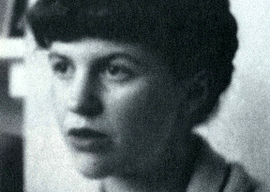
May 02, 2017

Sylvia Plath
Decades after dying by her own hand, a renowned female American poet makes the news. Sessions with her psychotherapist become public, revealing accusations of abuse and other sordid details of her already legendary life. Once more, critics and readers wonder: Was she a victim? A heroine? Or”was it possible”a villain?
If you guessed that I”m talking about Sylvia Plath, you”re only half right.
In March, a cache of Plath’s letters to her psychiatrist, Dr. Ruth Barnhouse, was briefly offered at auction, priced at $875,000, until Smith College sued. Barnhouse had willed her estate to the college (which was Plath’s alma mater), but the current owner of the letters, Plath scholar Harriet Rosenstein, claimed they”d been gifted to her by Barnhouse in 1970, and are therefore hers to sell.
This didn”t prevent the general contents (although not Plath’s exact words) of one of the previously unpublished letters from being revealed. In it, she reportedly tells Barnhouse (who”d served as the model for the psychiatrist in Plath’s roman à clef The Bell Jar) that her husband, British poet Ted Hughes, had battered her two days before she miscarried their second child; in another, “Plath wrote to Barnhouse that Hughes had told her that he wished she were dead.”
Choruses of “I knew it!” could fairly be heard in feminist and literary circles, in which the doomed poet is still revered as a martyr.
Plath’s journal entry describing her first encounter with Hughes, at a Cambridge magazine launch party in 1956, has titillated generations of artsy, writerly females:
“Then the worst thing happened, that big, dark, hunky boy, the only one there huge enough for me, who had been hunching around over women, and whose name I had asked the minute I had come into the room, but no one told me, came over and was looking hard in my eyes and it was Ted Hughes…. I was stamping and he was stamping on the floor, and then he kissed me bang smash on the mouth and ripped my hair band off, my lovely red hairband scarf which had weathered the sun and much love, and whose like I shall never again find, and my favorite silver earrings: hah, I shall keep, he barked. And when he kissed my neck I bit him long and hard on the cheek, and when we came out of the room, blood was running down his face.”
And that, even before the roman portions were restored, having been originally omitted from Plath’s published journals by Hughes, you see. That awful man, we tsked. And of course he drove her to death, sticking her with two kids and running off with that woman with the weird name”who killed herself (and their little girl) four years later! And his son with Plath committed suicide too.
“Typhoid” Ted Hughes! What a creep!
Most women of that particular temperamental and vocational bent, when we”re roughly the same age Plath was when she died”27″reflexively blame the Byronic Hughes for her demise. Some fans have even defaced her gravestone, erasing his surname.
No matter that we know all about Plath’s history of suicide attempts, as we hoard every available (and are they ever) crumb of her life: Each generation has its talismanic “Sylvia Plath biography.” In my day, it was Bitter Fame, which I understand has been dethroned by Mad Girl’s Love Song.
We are, at that age, still too attached to our own high-strung, hormonal neurosis to consider it anything other than permanent and necessary, an organ like a liver or a lung.
So we write our poems “to” and “for” and “about” and “inspired by” Sylvia Plath. (Mine are in here.) My first professional sale, at age 20, was to Seventeen, an accomplishment made even more savory because it had taken her“I knew by heart“fifty tries to crack the same “book.”
So should we feel pity for Anne Sexton, or something else?
Because that’s who I was talking about as well, in that opening paragraph. Plath’s contemporary and fellow “confessional” poet Sexton won a Pulitzer too (although Plath’s was posthumous). They both wrote about menstruation and childbirth and other previously taboo topics. And Sexton duly committed suicide, in 1974.
Then a 1991 biography of Sexton that “relied heavily on material from the poet’s private therapy sessions” purported to reveal her “traumatic”and sexually charged”relationship as a girl with her great-aunt, Nana, and the poet’s sexual abuse of her daughter. Sexton’s adulterous affairs with a succession of men are described in detail, as are her affairs with a girlfriend and one of her later psychiatrists.”